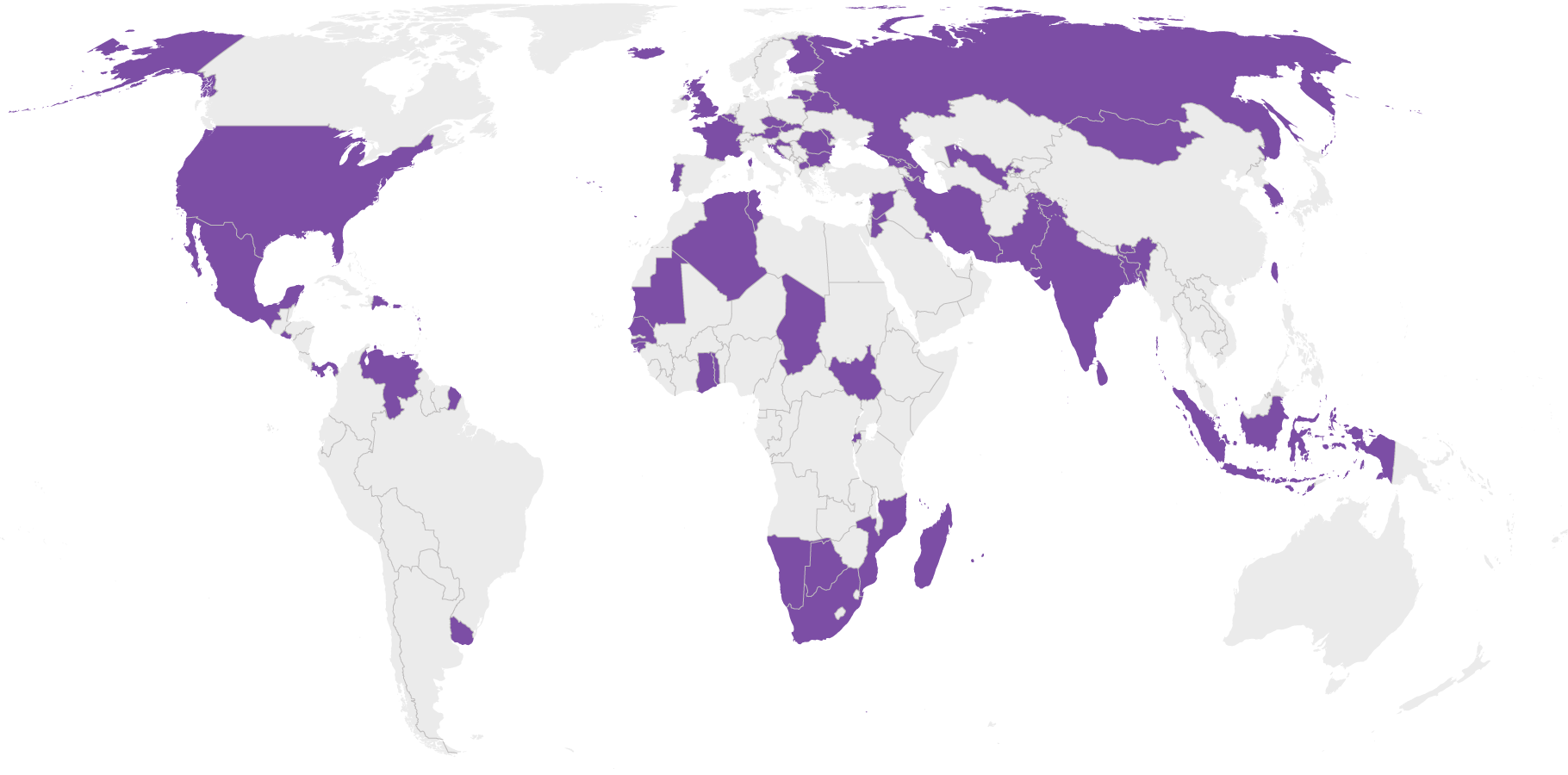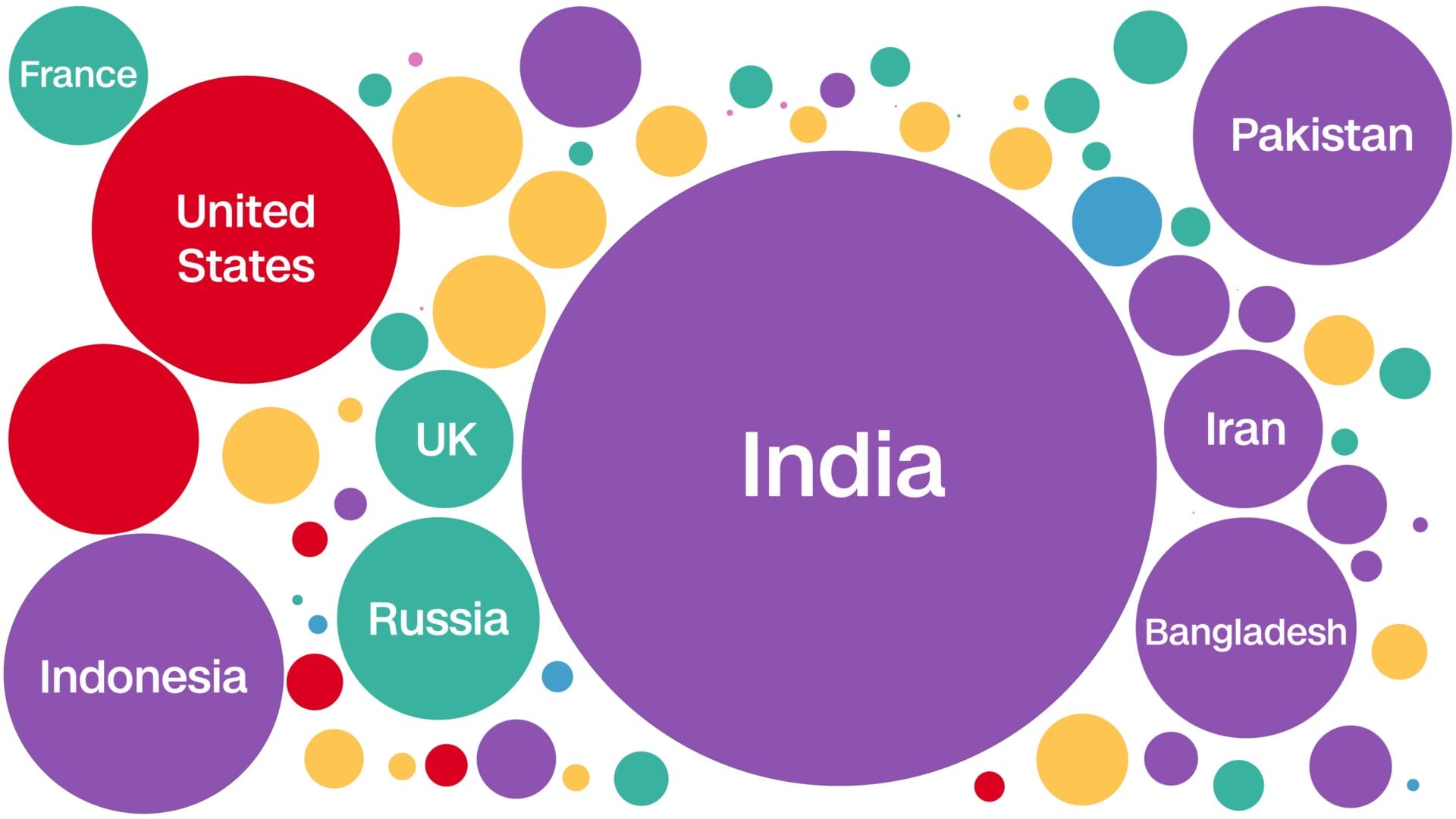At least 70 countries have elections in 2024. Here is a guide in maps and charts:
(CNN) — As the presidential race in the United States heats up, many other countries around the world are also conducting pivotal elections in 2024. More than 70 nations – home to nearly half the world’s people – have already or will soon select their own leaders at the polls, according to data from NGO the International Foundation for Electoral Systems.
Here’s a closer look at the countries holding elections, in maps and charts.
Countries and territories with national elections in 2024

India, the world’s most populous country, has already held the largest election this year. The South Asian nation has more residents than the European Union and the countries of North America combined. The election took 44 days, with more than one million polling stations, and its voters represented about 12% of the world’s population.
Nearly half the world’s population live in countries holding elections this year
More than 70 countries and territories — encompassing 44% of the global population — are holding national elections in 2024. India, the United States, and Indonesia account for more than 2 billion people — more than half of the voting countries’ combined population.

Voters in Mexico, the second most populous country in Latin America, selected the nation’s first female president — one of just 26 female leaders worldwide. About 54% of Mexicans voted in what was the largest election in the country’s history, with more than 98 million eligible voters, some 70,000 candidates and more than 20,000 public offices on the ballots.
Elsewhere in the world, over 30% of elections in 2024 are being held in undemocratic regimes — places where the contests aren’t fair or equal, and where leaders at times stop opposition or arrest protesters, among other undemocratic practices like election fraud.
16 elections are taking place in authoritarian regimes
Elections are taking place in at least 26 authoritarian or hybrid regimes, according to the Economist Intelligence Unit’s democracy index, making up over a third of all global elections this year. The rest are being held by democratic governments, at least 20 of which are categorized as flawed.

Vladimir Putin, for example, faced no real opposition in the Russian election in March this year. With most of his potential challengers dead, imprisoned or exiled, Putin won in a landslide with 87.3% of the vote. The Russian leader is currently serving his fifth term as president, and in 2020, he succeeded in amending the constitution for term limits, enabling him to potentially stay in power until 2036.
Iran held an election last week that saw the lowest voter turnout for a presidential contest since the Islamic Republic was established in 1979. With no candidate receiving more than 50% of votes, a runoff election took place June 5 between the two leading candidates: Reformist lawmaker Masoud Pezeshkian and ultraconservative former nuclear negotiator Saeed Jalili.
Scores of other major countries are voting this year, including Pakistan, Bangladesh and France. In the first round of French elections last week, Marine Le Pen’s far-right National Rally (RN) party led in the parliamentary votes, and President Emmanuel Macron’s Ensemble alliance came in third. While the RN slumped to third place in the decisive second round, after centrist and leftist parties united to prevent it from taking power, it still won more seats in the French parliament than ever before, making it the largest single party, and appears likely to be a potent force in the years ahead.
In recent European Parliament elections, far-right parties performed well — with the National Rally gaining seven seats — and were particularly popular with young people.
In election countries, young people often make up the majority of citizens
Nearly half the countries holding elections have a population where more than 50% of the citizens are Gen-Z or Millennials.
Voter turnout among young people has historically been quite low. For instance, in the 2019 UK election, only 47% of voters aged 18 to 24 participated, compared to 75% of those over 65, according to Ipsos Mori estimates. The trend was even more pronounced in the US, where only 28% of voters aged 18 to 29 turned out for the 2018 election, as estimated by CIRCLE.
One aspect that might influence young people’s votes is that the median age of current national leaders around the world is 62, according to the Pew Research Center. In 2023, 76% of Americans aged 18 to 29 said that Biden, 81, is too old to run for president, according to an Associated Press-NORC Center for Public Affairs Research poll.
So far this year we have already seen many elections, but the season is far from over, with many countries still waiting to go to the polls.



